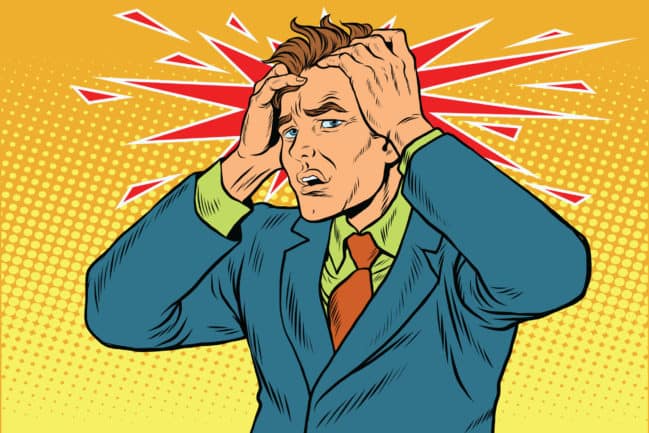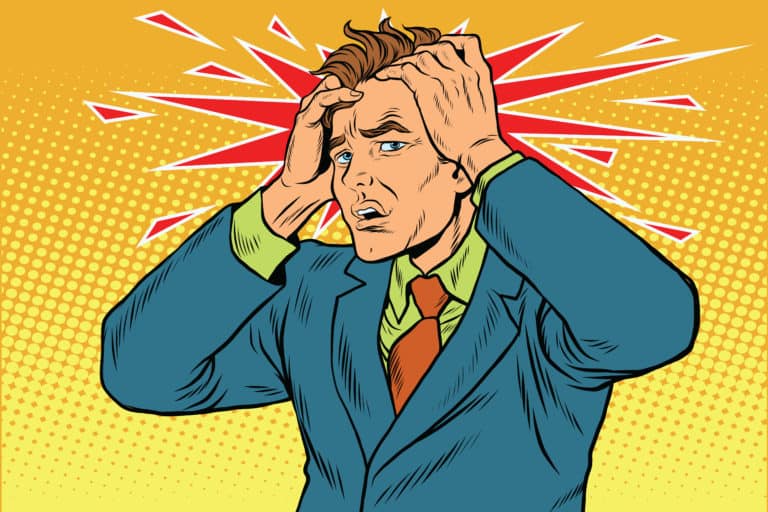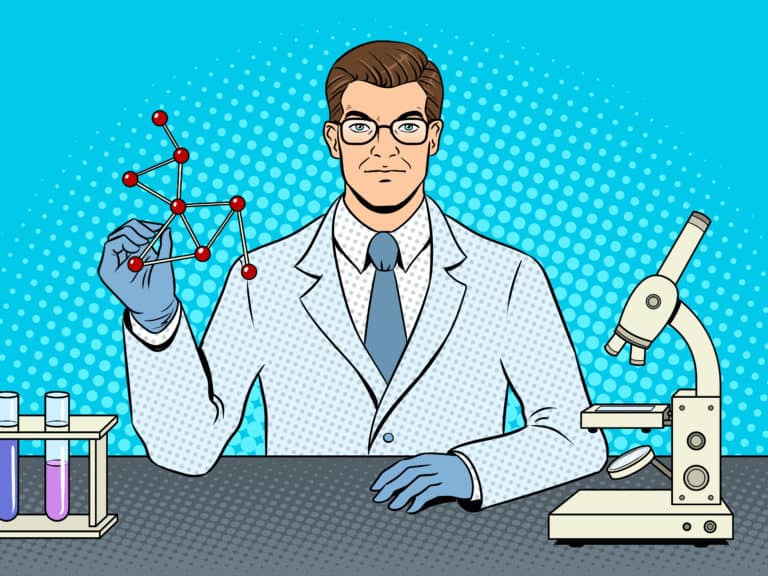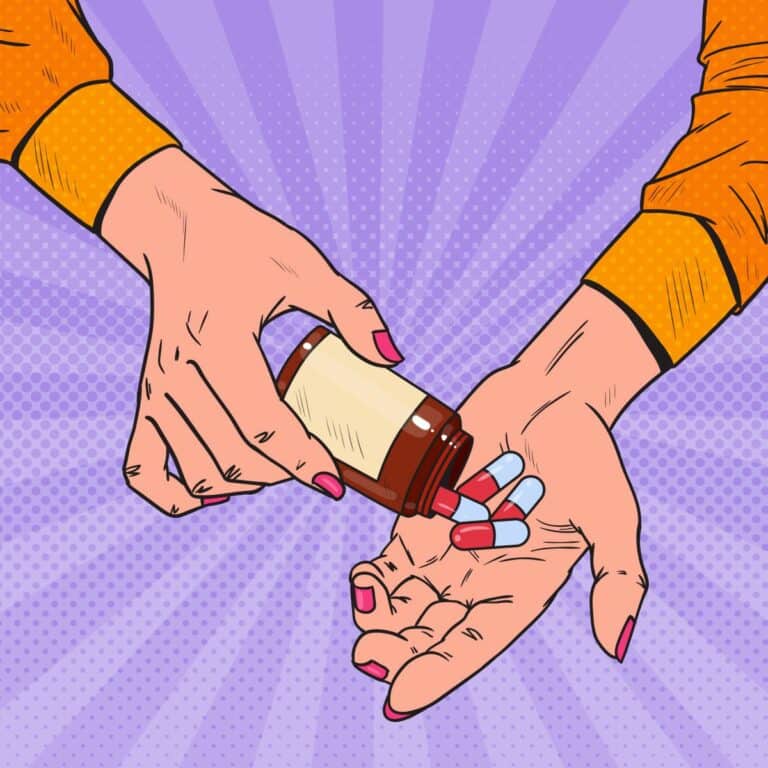For people with ADHD, hyperfocus and hyperfixation can be both a gift and a curse. On the one hand, focusing intently on a subject you are interested in might be fantastic. However, on the other hand, it can be difficult to switch focus when you need to. This is just one of the many problems people with ADHD confront daily.
We’ve all been so caught up in something that time has gone unnoticed. On the other hand, those with Attention Deficit Hyperactivity Disorder appear to be far more susceptible to Hyperfocus and Hyperfixation.
When you’re completely immersed in something, hyperfixation occurs. It becomes all-consuming, disrupting your daily functioning. It’s difficult to pay attention to anything else than the thing causing your hyperfixation.
What can hyperfixation look like?
A child hyperfixated on a video game may forego eating and sleeping just to keep playing.
An adult hyperfixated on work might miss important family events or forgo social interactions altogether.
A student who is hyperfixated on a project might neglect other assignments.
The following are some of the most frequent symptoms of hyperfixation:
- Lose track of time. The person is so focused on one thing that they lose track of time. When they emerge from their state of hyperfixation, they have no idea whether they were ‘gone’ for an hour or 12 hours.
- Forget to eat. The person is so focused on one thing that they simply forget to eat. When they emerge from their state of hyperfixation, they may realize that they are starving.
- Not hear people talking to them. If you talk to someone in a hyperfocused state, they will often ignore you. It’s not that they’re being rude; they don’t hear you.
- Not notice what’s going on around them. The sun sets, and it gets dark; people come and go; the smell of dinner wafting from the kitchen; you call them to eat; you tell them it’s time to go to bed; the kids screaming for attention; you tell them you need to talk… They don’t notice these things because their singular focus tunes everything else out.

You might be hyperfixated when it comes to:
- Games that you enjoy playing
- Working on a project that takes up all of your time
- Spending time on a hobby that absorbs every bit of your attention
- Binge-watching a TV series
- Drawing, painting. Trying to find information about your latest interest online and becoming engrossed in rabbit holes
Your hyperfixation might look different. But, the general idea is the same: you’re so focused on one thing that everything else falls by the wayside.
Hyperfocus happens when you become so engrossed in an activity that you can’t pay attention to anything else. It’s different from hyperfixation because it’s not all-consuming; you can still function while in a state of hyperfocus.
For people with ADHD, states of hyperfocus can be both good and bad. On the one hand, you might become so focused on a task that you achieve great things. On the other hand, you might miss important deadlines or neglect other areas of your life because you can’t seem to focus on anything else.
If you have ADHD, it’s important to find a balance. Recognise when hyperfocus is helpful and use it to your advantage. But, also be aware of when it might be disruptive and take steps to prevent it from taking over.
These items might become our go-to activities when we’re overwhelmed, sad, or nervous. You just want to relax and forget about whatever is causing you stress; do anything to divert your attention away from it.
We’ll happily sit back and lose track of time as we binge on Netflix, play a game, or plan our dream home. But, for people with ADHD, these can become obsessions that interfere with work, school, and relationships.

What Is Hyperfixation?
The ability to concentrate for extended periods is referred to as hyperfixation. Some call it “in the zone,” or “hyperfocus.” We’re doing something at the expense of everything else, but we’re not concerned with anything in particular.
Hyperfixation differs from this. It’s not just focused on that present moment; it’s obsessed with something. Great if it’s good for you or at least benign.
But this may lead to self-medication as ADHD symptoms worsen. We become hooked on running, a hazardous sport, seeking bargains, or looking for sex. These are all ways to stimulate the ADHD brain and get its missing neurotransmitters. Running risks is a way of producing adrenaline. As our adrenal glands get tired from overwork, we must take greater risks to experience the same thrill.
Similarly, people with ADHD may become addicted to drugs or alcohol to self-medicate.
Many times, our obsessions are not that harmful. We can become fixated on a new project at work or school and lose track of time. The line between healthy and unhealthy fixation is often blurred. We need to be concerned only when our obsessions start to interfere with our daily lives.
For me, hyperfocus comes from a place of deep interest. It’s a form of escapism, where I can forget about my problems and focus on something that makes me happy. But, it can also be a way to avoid my responsibilities.
When designing a website, slowly but thoroughly, it engages my mind and requires attention, precision, craftsmanship, and art. Time seems to pass me by; I’m fully absorbed in the moment. I’d be at my computer for hours, only coming away to eat when prompted and reminded by my partner. This is hyperfocus. And it’s not just an “ADHD thing.” It’s something that people with ADHD do naturally, without even thinking about it.
However, hyperfocus doesn’t always work. When I’m attempting to go asleep but my mind is racing, it’s not pleasant. Or when I’m supposed to be working on a project, but I’m instead reading about something that’s piqued my interest, it can be frustrating.
When we’re engrossed in something that we enjoy or that is essential to us, this is known as hyperfocus. However, for people with ADHD, it may become a means of avoiding things they do not wish to perform. It’s a defensive manoeuvre similar to procrastination, allowing us to avoid our obligations.
Website design or doing anything on a computer has been a pleasure for most of my adult life. It may become a refuge rather than a relief when it becomes an escape from what must be done.
For me, writing code or messing around with Photoshop is a form of meditation, and as numerous studies have demonstrated, Mindful Meditation can rewire the ADHD brain. (Or any other brain.) But the impact on those of us with ADHD may be significant, according to some researchers.
It’s soothing. It’s a great stress reliever for me. Those I’ve met through different ADHD forums spend their time on a variety of interests. Some enjoy working on cars, others like to renovate things, and some are enthralled with growing plants.
It’s all about not getting caught up in the details or putting off what needs to be done. It’s straightforward, but it’s important to find a balance. For me, prioritizing my responsibilities before I can devote myself to my hobbies and interests represents a healthy balance. They become extremely focused on the present moment. But it’s something they keep coming back to.
Is there a difference between hyperfixation and addiction?
Addiction is a constant craving. People who have overcome a substance addiction understand that they will always be faced with the urge to return to drugs or alcohol as a source of comfort. They don’t say, “I was an alcoholic,” even if they haven’t had a drink in 15 years. They identify themselves as an alcoholic. That craving is always there.
Hyperfocus is different; It’s intense, and then it’s over. You can be completely indulged in something and then, all of a sudden, you’re not. It’s like an addiction in the sense that you’re chasing a high, but it’s not the same as being addicted to something; then it’s all over.
What are the distinctions between hyperfocus and addiction, and is it possible to hyperfocus on a subject or activity to improve one’s profession or learn new skills? Hyperfocus has both advantages and drawbacks.
The ability to work at a speed of two to three times faster than the average person can be seen as an advantage. However, there are potential problems when ADHD occurs with other conditions, such as anxiety or depression. You can start taking on so much that you eventually become overwhelmed and can’t complete anything.
There is a risk of not being able to recognize when you need to take a break or if you’re getting in over your head. It can be difficult to stick with something when you’re constantly starting new projects and not finishing them.
Becoming dependent vs becoming addicted
Being dependent on something is not the same as being addicted to it. You can depend on caffeine to get through the day, but that doesn’t mean you’re addicted to it.
You can also depend on alcohol or drugs to cope with anxiety or depression, but that doesn’t mean you’re addicted to them. It’s important to distinguish between the two to get the right help.

You may depend on eating something full of sugar to get a quick energy boost, but that doesn’t mean you’re addicted to it. It’s when you can’t go without it, and you start to experience withdrawal symptoms, like shaking or sweating, that it becomes an addiction. You’d do anything to get your next fix, even if it means stealing or hurting someone.
Feelings go wild when you don’t get your ‘fix’ of whatever your addiction is, and moods swing unpredictably. You may experience physical symptoms as a result.
Recognizing the symptoms of addiction
The diagnostic manual mental health professionals use to diagnose conditions, the DSM-V, lists 11 criteria for substance abuse and dependence. If you meet two or three of these criteria, you may have a problem with addiction:
- You’ve built up a tolerance to the substance, so you need more of it to get the same effect.
- You experience withdrawal symptoms when you try to stop using it.
- You keep using it even though it’s causing problems in your life.
- It’s interfering with your work, school, or home life.
- You’re using it more often or in larger amounts than you intended to.
- You’ve tried to cut down or stop using it, but you can’t.
- You spend a lot of time getting, using, or recovering from the effects of the substance.
- It’s causing you to neglect your responsibilities.
- You continue using it even though it’s putting you in danger.
- You continue using it even though you know it’s causing or worsening a physical or mental health problem.
It is all-consuming and never goes away. Hyperfixation isn’t an unending desire or a must-have. Hyperfixation is something you can live without; it’s not a life-or-death situation.
While addiction is about using a substance to cope with underlying mental health issues, hyperfixation is often about filling a void.
Is hyperfixation the same as hyperfocus?
The terms hyperfixation and hyperfocus are frequently interchanged. As a result, there seems to be little difference between these two words.
Hyperfocus
The term “hyperfocus” refers to a sense of intensive and overt concentration on a certain topic or idea, which may be beneficial but also hazardous. It is, nevertheless, a typical symptom of ADHD and isn’t considered linked to ASD.
Although the name implies otherwise, profound attention deficit does not always imply a complete lack of awareness. They have trouble controlling their minds to accomplish everyday activities.
The advantages of hyperfocus have been characterised as exceptional and talented by children who have it since their focus keeps them excessively engaged in creating something remarkable. Excessive focus on unimportant activities or things, on the other hand, might cause damage to one’s quality of life.
Hyperfixation
Fixation on a specific program, figure, or idea is known as hyperfixation. It’s a form of adaptation for people who have anxiety issues, depression, and autism. People who are fixated on a subject do not shift their attention to something else after completing a specific task as hyperfocused individuals do.
Even after the show has ended, people who engage in hyperfixation continue to watch it and read the associated novels, converse about it nonstop, or even relate themselves to a character in real life.
Binge-eating, fixating on an ex-partner, and wearing a specific cloth are all examples of hyper fixation. It then generates a dopamine rush in the brain. As a result, the individual will continue to enjoy what they are doing, whether it is good or not.
Takeaway
Dealing with hyperfixation may be difficult, but there are tools you can use to help loosen the grip. To begin, you must first identify your fixation’s focus; then utilise logical planning and mindfulness exercises to create distance and structure around the subject.
In most situations, working with a professional may be extremely beneficial in determining the underlying source of your fixation and unravelling your obsessional need or obsession in your life.








